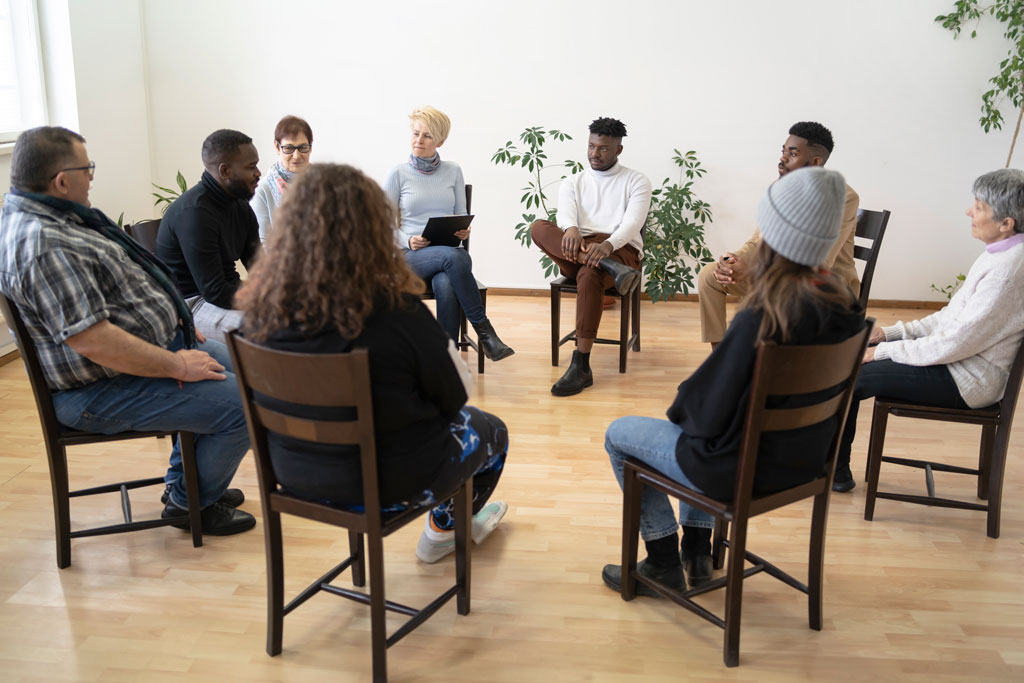What to Look Out For: Ativan Overdose Symptoms
Ativan overdose can be fatal. Learn more about Ativan overdose symptoms and ways you can prevent them here.
What is Ativan?
Ativan is a prescription medication for anxiety disorders, seizures, and insomnia. It is a benzodiazepine that slows down the central nervous system to produce a calming effect. While Ativan can be an effective treatment for these conditions, it is also a drug that has a high potential for abuse and addiction. This article aims to explain Ativan overdose symptoms, its addiction potential, and what to do in case of overdose.1

Understanding Ativan Addiction
Ativan addiction can happen to anyone, even those who take the drug as prescribed by their healthcare provider. However, addiction is more likely to occur in individuals who take the medication for extended periods or take higher doses than recommended.
Why Do People Get Addicted to Ativan
Ativan works by enhancing the effects of a neurotransmitter in the brain GABA. It helps to reduce activity in the brain and central nervous system resulting in a sense of euphoria, calming effects, and reducing feelings of anxiety and stress. The sense of pleasure or relief from anxiety leads people to take the drug more frequently than prescribed.
Ativan Tolerance
Risk Factors for Ativan Addiction
Several risk factors can increase the likelihood of developing an addiction to Ativan. These risk factors include:3
- Substance Abuse History: People with a history of substance abuse are more likely to develop Ativan addiction. This is because they may have a higher tolerance for the drug.
- Genetics: Genetics can play a role in the development of addiction. Individuals with a family history of addiction may be more likely to develop an addiction to Ativan.
- Mental Health Disorders: Mental health disorders such as anxiety, depression, and PTSD can increase the risk of Ativan addiction. These conditions can cause individuals to seek relief from their symptoms through drug use.
- Higher Dosage: Taking higher doses of Ativan than prescribed or longer than recommended can increase the risk of addiction. Higher doses can produce a stronger effect, leading individuals to seek the drug more frequently.
- Other Substances: Using Ativan with other substances, such as alcohol or opioids, can increase the risk of addiction and overdose. These substances can enhance the effects of Ativan, making it more addictive.
- Environment: An individual’s environment and personal surroundings also play a role in raising your risk for addiction. Many young people get addicted to drugs because of peer pressure.
Can You Overdose on Ativan?
It is possible to overdose on Ativan, which is why it’s so important to be able to recognize Ativan overdose symptoms. Ativan overdose is a severe medical emergency that requires immediate attention. An overdose can occur when an individual takes more Ativan than their body can handle. It is essential to note that an overdose can happen to anyone, regardless of whether they are taking the medication as prescribed or abusing it.
Factors That Influence Ativan Overdose Symptoms
Several factors can influence the likelihood and severity of an Ativan overdose symptoms, including:
- Tolerance: Tolerance occurs when the body becomes used to the effects of medication and requires higher doses to achieve the same level of relief. People with tolerance to Ativan may require higher doses to achieve the desired therapeutic effects, increasing the risk of overdose.
- Dependence: Dependence occurs when the body becomes physically dependent on a medication and experiences withdrawal symptoms if the medication is discontinued abruptly. Dependence leads to an increased risk of overdose.
- Other factors influencing the likelihood and severity of an Ativan overdose include age, weight, underlying medical conditions, and other medications or substances being taken.
What are the Ativan Overdose Symptoms?
Some of the Ativan overdose symptoms include the following:4
- Drowsiness
- Mental confusion
- Paradoxical reactions (opposite of intended effect)
- Dysarthria (difficulty speaking)
- Lethargy (lack of energy)
Severe Ativan Overdose Symptoms
In more serious cases, especially when other drugs or alcohol were taken, Ativan overdose symptoms can include:
It is important to remember that an overdose of Lorazepam can be life-threatening, and prompt medical attention is essential. If you recognize any of the Ativan overdose symptoms, seek medical attention immediately.

How to Prevent Ativan Overdose Symptoms
To prevent Ativan overdose, it’s important to always take the medication as a healthcare provider prescribes. Avoid alcohol and other sedatives while taking Ativan. Never increase the dosage without consulting a healthcare provider. Additionally, regular communication with a healthcare provider about the effectiveness and side effects of the medication can help prevent accidental overdose.
What to Do If Experiencing Ativan Overdose Symptoms
If you or someone you know is experiencing any of the aforementioned Ativan overdose symptoms and you are waiting for emergency responders, here are some things you can do:
- Call 911 or your local emergency number right away.
- Stay with the person and monitor their breathing and pulse.
- Try to keep the person awake and responsive.
- If the person is unresponsive, roll them onto their side to prevent choking.
- Provide relevant medical information to the emergency responders, such as medications, medical history, and allergies.
- Do not give the person anything to eat or drink.
- Do not induce vomiting unless instructed to do so by emergency responders.
- Gather any drug paraphernalia or pill bottles to provide to emergency responders if possible.
- Follow any instructions given to you by the emergency responders.
Management of Ativan Overdose Symptoms
To manage Ativan overdose symptoms, healthcare providers can take the following steps:
- Provide general supportive and symptomatic measures.
- Monitor vital signs, such as blood pressure and heart rate, and closely observe the patient for changes in symptoms.
- Do not induce emesis (vomiting) if there is a risk of aspiration.
- Consider gastric lavage (washing out the stomach) if the overdose occurred recently or the patient is symptomatic.
- Administer activated charcoal to help limit drug absorption.
- If necessary, control hypotension (low blood pressure) with norepinephrine bitartrate injection.
- In more serious cases, hospitalization may also be necessary to flush out Lorazepam from the body.
Treatment for Ativan Addiction
Treatment for Ativan addiction may include a combination of detoxification, rehabilitation programs, and behavioral therapy.
- Detoxification: Detoxification involves withdrawing from Ativan under medical supervision to manage withdrawal symptoms safely.
- Rehabilitation Programs: Rehabilitation programs provide individuals with a supportive environment to recover from addiction.
- Behavioral Therapy: Behavioral therapy addresses the underlying factors contributing to addiction, such as stress, anxiety, and trauma. It helps people recognize negative thought patterns and focuses on teaching coping mechanisms.
- Medication-assisted treatment (MAT): Medication-assisted treatment (MAT) can also be an effective treatment option for Ativan addiction. MAT involves using medications to manage withdrawal symptoms and reduce cravings.
Personalized Treatment at Essence Healthcare
At Essence, we are fully committed to providing compassionate and effective care to help individuals overcome Ativan addiction and achieve long-term recovery. We believe that recovery is possible, and we are here to support our clients every step of the way.
We offer a range of evidence-based treatments, including behavioral therapies, medication-assisted treatment, and holistic approaches to help manage Ativan overdose symptoms and withdrawal and address underlying mental health conditions that may contribute to addiction.
Contact Us Today
Our team understands that addiction is a complex disease affecting individuals and their loved ones. We offer family therapy and support groups to help families heal and rebuild relationships. If you or a loved one is struggling with Ativan addiction, please don’t hesitate to contact us to learn more about how we can help.


